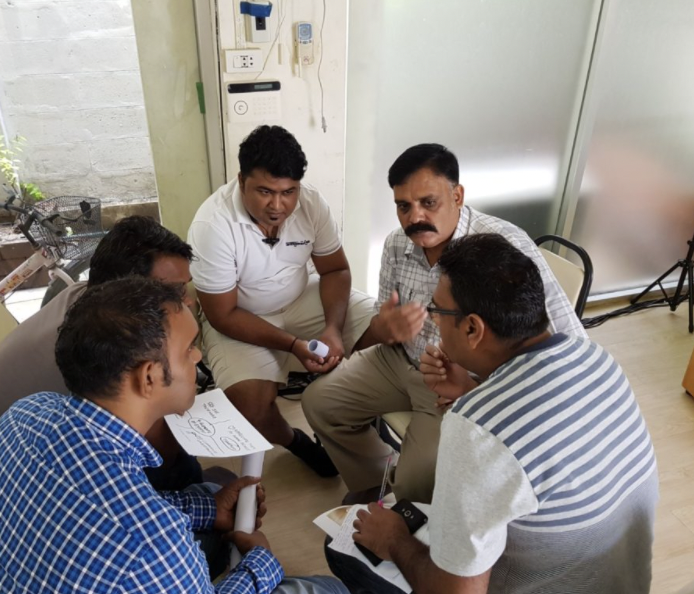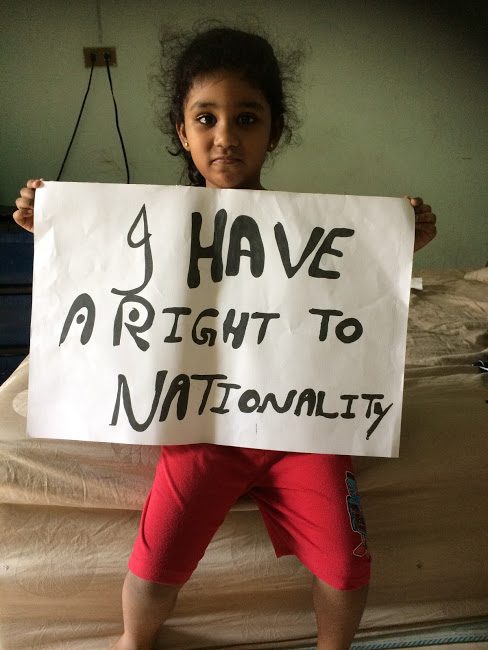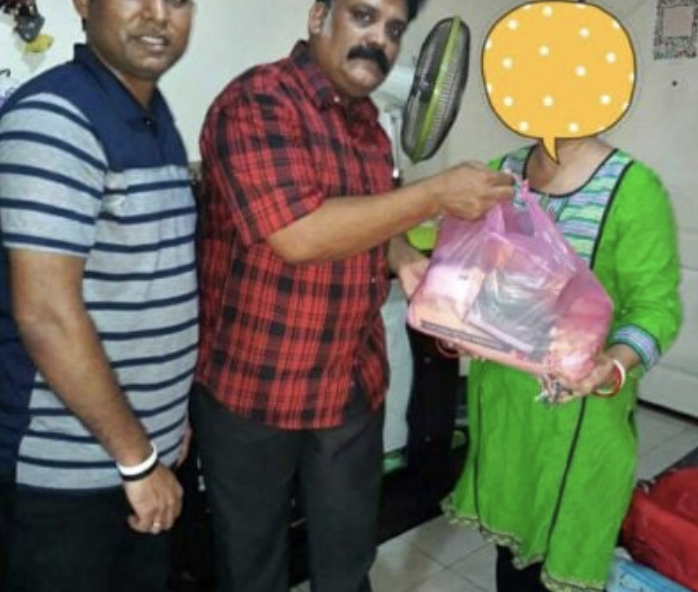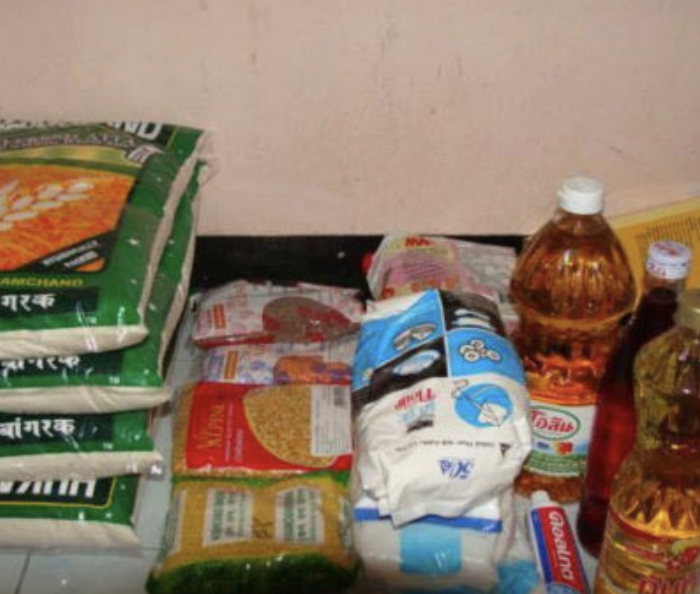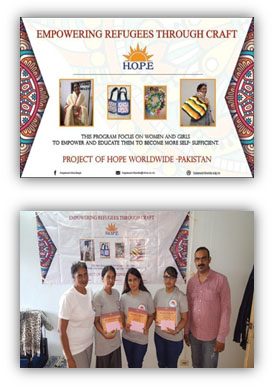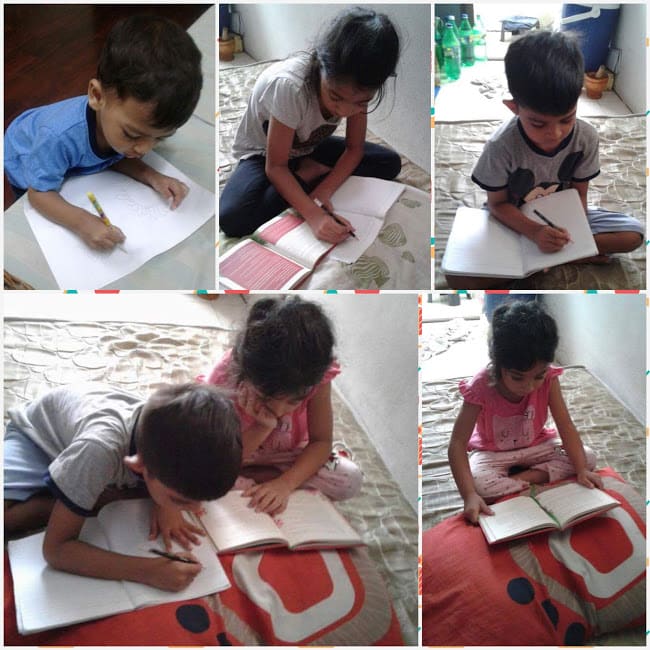Bangkok Support Program
In 2013, number of families migrated from Pakistan to Thailand as the refugee and seeking asylum.But they became victims of unnecessary detention and stranded hence struggled for the safe place to live with their families in peace and harmony. A group of committed people joined hands and initiated a project of Bangkok asylum seeker support programme. Dr. Khurram Malik made visits to Thailand to access the situation of these refugees and further finding ways to provide support to these refugees and continued to help refugees and raise voice against injustice and human rights violation. During his visits, he met with these refugees along with other key actors and organizations related to support and help refugees in providing asylum.
He met with officials of UNHCR and filed the cases for seeking their support and help. He also met with Thai government officials, ministries and local churches, (Pastor Thoedsak Ajkraasawart from Jaisman Church Bangkok) came forward and joined hands for supporting distressed families those already in Bangkok seeking asylum. Alongside he is also having detail meetings with the families to assess their immediate needs like food, shelter, medicine and other necessities of life.
There are hundreds of thousands of asylum seekers of mainly from Burma, Cambodia, Laos, and Vietnam but Pakistani asylum seekers who are hundreds in number have sought for asylum and facing extreme hardships and their basic Human rights being violated and lost their dignity. These people are stranded and their applications for refugee status is under process and are facing lot of hardships like no legal recognition, no right to work, fear of being arrested, no education, no medical treatment rights and malnutrition.
Initially, HOPE has started provision of support to 10 families in Bangkok comprised of 10 male adults, 10 female adults, 9 boys, and 6 girls. While carrying out the need assessment of these families through interviews and observation find out of their immediate needs of shelter, food, and medicines. Furthermore, a package of the food and non-food items is finalized in consultation with the families consisting of flour, tea, edible oil, rice, lentils, milk, sugar, soap and water bottles. Package of these items for 15 days is provided to the 10 families by HOPE Worldwide by its own resources and much appreciated by the receiving families.
Expressions of Beneficiaries
“We are happy for food given from HOPE organization in very difficult situation as we have no food in our house.”
Haroon
“There was little food available in my house and this time when HOPE NGO came to my house and gave us food, lintels, milk, flour, and rice. We ate and thanks.”
Babar
Empowering Refugees through Craft
- This project is designed to empower urban refugees and asylum seekers in Bangkok-Thailand.
- This program is primarily focused on women and young girls to empower and educate them to become more self-sufficient.
- These women and girls will be given opportunities to learn new skills that can be used to generate an income, which could lead them to gain confidence and a healthier and more productive lifestyle. We have four groups of women who have been trained to learn craft skills.
- These women anIn these six-week group sessions, trainees were provided with craft material. We have supported women for their transport to attend classes otherwise they would not able to afford to come to class.d girls will be given opportunities to learn new skills that can be used to generate an income, which could lead them to gain confidence and a healthier and more productive lifestyle. We have four groups of women who have been trained to learn craft skills.
- WELL DONE for our valuable volunteer Josephine Gill who played an enormous role by supporting trainees. In all six-week classes, all candidates who have put their efforts in to learn, attended classes and completed the Craft Course have been awarded with Certificates and been reimbursed for their travel fares. HOPE believes in developing people’s strengths and skills and this course had enhanced their skills and confidence to become more self-sufficient.
Case Studies
Sanjeeda (not real name), 40 years old, has four children, lives in Thailand for three years. Because her husband is sick and had a severe accident in Thailand, she is unable to support her family. She is the only bread-winner in her family. Her husband is confined to a bed, relying on support from charities and other support groups. Sanjeeda has also applied for asylum with UNHCR.
She says that being poor means that her whole life is spent struggling for the survival. Distressing poverty shatters the lives of the poor because they hardly make ends meet. Sanjeeda has been enduring this lifestyle. She, with sad eyes remarks that we have been facing many difficulties and hardships because of no job and a language barrier and every month struggles to meet the family’s needs.
In this hard situation, she met with HOPE team members and was informed about the organization and its programs. She was given the opportunity for six weeks training in craft work under “Empowering Refugees through Craft” Program. HOPE bore all the expenses. She remarks that “I have enjoyed the six-week program and also have received a certificate from the organization”.
Furthermore, she explains that “the HOPE craft program has enhanced my embroidery skills and I have learnt to make new and different craft products such as hand bags, shawls, sweaters, and socks”.
After making all these products, it is very important to have access into the market so that she could earn reasonable prices. With the efforts of the HOPE team, she was able to have access to the market.
“Now I am selling these products and am able to earn enough for providing bread for my children”, says Sanjeeda.
Finally, she thanks the HOPE team for increasing her skills regarding craft and prays that the organization may bloom and work for all those needy women and increase their skills and help them to be independent.




